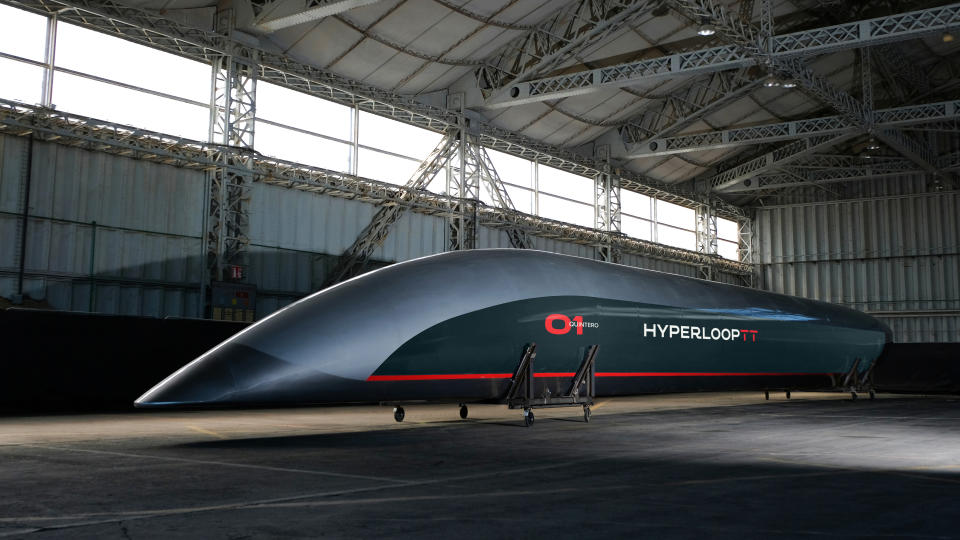In the face of COVID-19, one hyperloop company is making friends
HTT spent the last month teaming up with big names in railways and infrastructure.
Two companies looking to build a hyperloop transport system are taking very different approaches. In the US, Virgin Hyperloop is working hard to develop its technology almost entirely under its own power, while in Europe, its major rival, Hyperloop Transportation Technologies (HTT), believes that the only way to make a success of the project is to make as many friends as possible.
Its latest alliance is with Ferrovial, a construction and infrastructure company that part-owns Britain’s largest airport, Heathrow. Ferrovial has a history of building major road and transport facilities across the world, and the pair will work together on as-yet-unnamed future projects.. HTT believes these partnerships will be key to its growth. It may not have been able to demonstrate its Hyperloop technology this year, but it has been able to boast about major new alliances like this.
The Ferrovial deal is the third such tie-up in the last few weeks. On December 3rd, HTT announced that it is teaming up with Altran, a division of management and technology consultancy giant Capgemini. Altran has experience with rail engineering and infrastructure, consulting on Taiwan’s high-speed rail project and even working with Technical University of Valencia on their own hyperloop project.
The deal, where Altran will take a small stake in HTT, means that 100 Altran engineers will work at HTT’s R&D facility in Toulouse, France. They will work on integrating the various technologies that make up the hyperloop into a single, seamless product.

Then, on December 8th, HTT announced that it was partnering with Hitachi Rail, a big player in the European rail industry. As well as a financial investment, Hitachi promises to share its signaling technology, crucial to monitor trains in real-time, with the company. The platform, known as ERTMS, was a pan-European project to replace a mishmash of legacy rail signaling with a continent-wide single standard. The system includes modules that help trains talk to one another, as well as to the “track” itself. HTT wanted to emphasize how the deal shows the growing embrace between the railway establishment and the company that seeks to revolutionize it. Hitachi, as part of the deal, also gets the right of first refusal when it comes to building the system on future Hyperloop networks.
The announcements, while small in isolation, are all part of HTT’s strategy of building a broad coalition with existing industry partners. For a while, it’s been working with TÜV Süd -- a German product safety assessor -- to build safety guidelines for future hyperloop setups. The company also teamed up with the operator of Port of Hamburg -- Germany’s largest seaport -- to look for better ways to move goods around. Even further back, in 2017, HTT teamed up with insurer Munich Re to certify that these projects will be insurable -- a key plank to ensuring the company’s viability from a business perspective.
HTT is keen to dismiss comparisons with Virgin Hyperloop, mentioned earlier, its ostensible rival in this transportation space race. That company made headlines recently after making its first crewed capsule test at its DevLoop facility in Nevada. HTT, meanwhile, was forced to temporarily close its Toulouse facility to comply with French lockdown orders. But it said that the extra downtime has been useful since it enabled the team to demonstrate how effective its technology is at holding a vacuum.
Due to the continued impact of COVID-19, HTT hasn’t yet demonstrated its vision with a working test. It says that the greater incubation time it has, and its diverse roster of engineers -- all working as part of the company’s unusual distributed working structure -- will win out in the end. But until the company is able to offer tangible proof of its technology, HTT will just have to make sure it’s making as many friends as it can.
